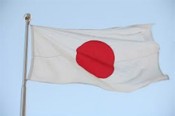By: Daniel Nardini
 One of the sad things about ultra-nationalism is that those who espouse it are stuck in the past. Such is the case with Japan and South Korea on one hand, and Japan and China and Taiwan on the other. In the case of Japan and South Korea, they are locked in a major row over a couple of islets midway between the two countries. These islets, called Takeshima by the Japanese and Dokdo by the Koreans, are virtually uninhabited. There is a Korean police force on these islets and an elderly Korean couple with a home there. These islets are rich in fisheries and maybe resources like oil. In July, South Korean President Lee Myung-bak visited the islets—the first South Korean president to do so. This made the Japanese angry beyond belief, and they have threatened some action in the future.
One of the sad things about ultra-nationalism is that those who espouse it are stuck in the past. Such is the case with Japan and South Korea on one hand, and Japan and China and Taiwan on the other. In the case of Japan and South Korea, they are locked in a major row over a couple of islets midway between the two countries. These islets, called Takeshima by the Japanese and Dokdo by the Koreans, are virtually uninhabited. There is a Korean police force on these islets and an elderly Korean couple with a home there. These islets are rich in fisheries and maybe resources like oil. In July, South Korean President Lee Myung-bak visited the islets—the first South Korean president to do so. This made the Japanese angry beyond belief, and they have threatened some action in the future.
Then there is the dispute of some more islands close to Taiwan. These islands, called the Senkaku islands by the Japanese and the Diaoyu islands by the Chinese (the Diaoyutai islands in Taiwan), are uninhabited but patrolled by the Japanese. Earlier this month, private Chinese and Taiwanese citizens landed on these islands to assert Chinese claims to them. The Japanese captured them and released them two days later after diplomatic pressure from China. Then private Japanese citizens went to these islands and this caused anti-Japanese riots in China and Taiwan. To put it mildly, just about everyone is edgy in the Far East about these rather insignificant places. You cannot grow anything there, these places are too small for people in any number to live there, and even those stationed there or near there find them pretty uninhabitable.
But it is all about nationalism. Sadly, it is becoming a real problem in Japan, South Korea, China and Taiwan. Their claims to these islets (or as I see it, a bunch of rocks in the ocean) is based on dubious historical claims. The Chinese have claimed they have always owned the Diaoyu islands. The Japanese have claimed ownership ever since they took Taiwan in 1895. The Koreans have claimed the Dokto islands since the Shilla period (668-935 A.D.), and the Japanese have claimed the Takeshima islands since 1910. Nobody has tried to find a solution to these disputes, and as far as each individual country is concerned these islets “belong to them.” These disputes have not helped these countries deal with just as equally pressing problems. One example is South Korea’s refusal to sign an agreement with Japan on sharing of military information on North Korea. Another example is Japan being unable to deal in a peaceful manner on the rise of China’s Navy.
While I do not think that war will likely break out, it is causing serious tension that in too many ways is not helping the region. The truly sad thing is that South Korea and Japan have much more in common than these two countries realize. And the greatest threat they both face is North Korea. It would make more sense for these two countries to work together than fight against each other. What might happen is that the dispute over these islets will become simply one more problem to more serious conflicts in the region over these countries’ interests. All of this can be a very dangerous and volatile mix.
 Avoid Common Errors When Preparing Tax Returns March 13, 2025
Avoid Common Errors When Preparing Tax Returns March 13, 2025

 St. Patrick’s Day Celebrations March 13, 2025
St. Patrick’s Day Celebrations March 13, 2025






Fighting for a Bunch of Rocks
By: Daniel Nardini
Then there is the dispute of some more islands close to Taiwan. These islands, called the Senkaku islands by the Japanese and the Diaoyu islands by the Chinese (the Diaoyutai islands in Taiwan), are uninhabited but patrolled by the Japanese. Earlier this month, private Chinese and Taiwanese citizens landed on these islands to assert Chinese claims to them. The Japanese captured them and released them two days later after diplomatic pressure from China. Then private Japanese citizens went to these islands and this caused anti-Japanese riots in China and Taiwan. To put it mildly, just about everyone is edgy in the Far East about these rather insignificant places. You cannot grow anything there, these places are too small for people in any number to live there, and even those stationed there or near there find them pretty uninhabitable.
But it is all about nationalism. Sadly, it is becoming a real problem in Japan, South Korea, China and Taiwan. Their claims to these islets (or as I see it, a bunch of rocks in the ocean) is based on dubious historical claims. The Chinese have claimed they have always owned the Diaoyu islands. The Japanese have claimed ownership ever since they took Taiwan in 1895. The Koreans have claimed the Dokto islands since the Shilla period (668-935 A.D.), and the Japanese have claimed the Takeshima islands since 1910. Nobody has tried to find a solution to these disputes, and as far as each individual country is concerned these islets “belong to them.” These disputes have not helped these countries deal with just as equally pressing problems. One example is South Korea’s refusal to sign an agreement with Japan on sharing of military information on North Korea. Another example is Japan being unable to deal in a peaceful manner on the rise of China’s Navy.
While I do not think that war will likely break out, it is causing serious tension that in too many ways is not helping the region. The truly sad thing is that South Korea and Japan have much more in common than these two countries realize. And the greatest threat they both face is North Korea. It would make more sense for these two countries to work together than fight against each other. What might happen is that the dispute over these islets will become simply one more problem to more serious conflicts in the region over these countries’ interests. All of this can be a very dangerous and volatile mix.